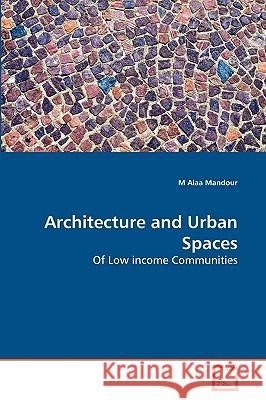Architecture and Urban Spaces » książka
Architecture and Urban Spaces
ISBN-13: 9783639270556 / Angielski / Miękka / 2010 / 184 str.
The failure of many formal solutions for low income housing has often been the lack of understanding of the informal phenomenon which is an alternative to those excluded from the formal housing market. The informal sector represent a solution that appears to deny conventional planning orthodoxy, and clearly the priorities of this sector are not those of the municipal authorities. The way they shape their environment is often completely different than what is shaped for them. Space takes precedence over permanence and use defines need: a porch may be build before a bathroom, an adjoining work place may be more important than a private bedroom and outdoor seating may be constructed before an enclosed space. This apparent inversion of values is especially evident in the public spaces. This study concerns socio-cultural aspects for low income housing urban spaces. It involves investigation into types of spaces which are relevant to Egyptian context, it reviews how much areas should be devoted to such spaces, and what design considerations should be kept in mind regarding their location, form and shape.











